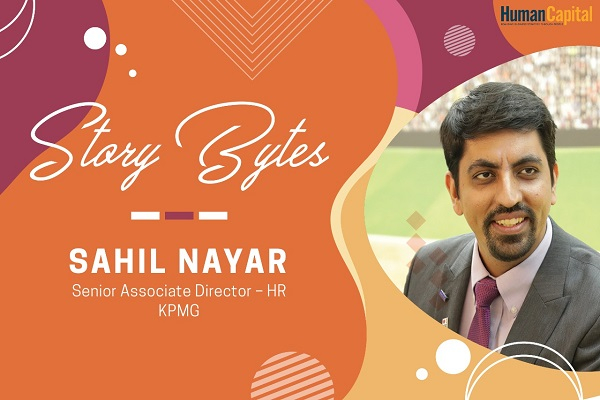Work-life balance is a diurnal effort to make time for family, active participation in society and the community, spirituality, personal growth, self-care, and other personal activities, along with the demands of the workplace.
In the corporate race to scale large heights, stay ahead of the competition and make a mark in the marketplace companies often see employees spending a large part of their day devoted to work, whether in or out of the office. This has, over the years, created a workforce that feels they are unable to attain the fine balance between their personal and professional lives.
Work-life balance is a concept that supports the efforts of people to split their time and energy between their personal and professional life. Work-life balance is a diurnal effort to make time for family, active participation in society and the community, spirituality, personal growth, selfcare, and other personal activities, along with the demands of the workplace.
Encouraging schedule flexibility
The Indian workplace is a dynamic and a constantly evolving space that has seen drastic transformations over the last decade. The definition itself has become more fluid, with companies encouraging flexible work hours and several other alternatives to aid increased productivity or get more value from the delivery of each employee.
Amidst work, one also needs to balance their lives and family responsibilities - with precious little time in between to focus on anything else. And health is often then relegated to the lowest rung on the priority scale.
With such strain on today's workforce it is important for HR practitioners and company policymakers to frame policies that allow them to achieve a healthy work-life balance. This will not only aid better productivity, it will also keep your workforce happy, energized and focused on the job at hand.
HR today is working closely with the parameters of outcomes and productivity.
Importance on 'how' over 'what'
This applies across functions. How do you brand your product and company? How do you treat your employees, and so on. It is imperative to spend time and energy to focus on 'how' rather than just 'what'. Caring about the finer details when it comes to HR policies may seem irrelevant, however, they greatly add to the overall experience of the employee and its resultant effect will be visible in the output. For us at K Raheja Corp, we have handpicked the best policies,all of which are uniquely designed keeping in mind our workforce, basis what meets the cultural requirements of our Company, while continuously evaluating 'how' it adds value to employee experience.
Flexible work Culture
Line managers who want to retain control often do not support flexible culture. Today's generation is highly multifaceted, and the generation that has started entering the workforce has an inherent entrepreneurial spirit in them. It is hence imperative that the work culture supports the same to ensure the best levels of quality output and long-term retention.
Wellness at the Work Place
Catering to employee well-being at work has multiple benefits. It builds the bond of caring between the employer and employees and shows concern that goes beyond just their work. By providing workers with these services, companies are improving wellbeing and job satisfaction, as well as raising retention rates. The welfare of employees has a direct impact on the success of the company. A stronger, healthier workplace means fewer sick days given out. There will also be a direct change in the energy levels which will positively impact productivity.
Respect for working hours
Thanks to technology, work can now be done at any given point of the day, across time zones and places. What this sometimes translates to is that there is no real shutting off from work, or tuning out. Emails are configured to phones, so you are more or less always accessing work. Carrying work home is a common phenomenon, which means you can work from home if required, but it also means you subconsciously check emails on a Sunday. As a company, we should encourage our teams and employees to work smart, use the available technology to their best, and also prioritize tasks such that the hours at work are utilized more fruitfully
These are some key HR practices that can be applied across the board, in large and small companies alike - irrespective of the industry. Many smaller businesses and institutions do not pay heed to building strong HR practices early on as they feel it could be brought in at a later stage. However, incorporating systems and practices early on would help build a strong foundation for the company, attracting most suitable employees with better retention.
Human resources has today evolved into a business partner, and plays a critical role in helping an organization retain its competitive edge, while remaining ahead of the curve. It is a function responsible for understanding organizational pulse and introducing suitable practices to suit. It is also responsible to build a culture which is conducive to innovation, becoming agents of continuous transformation, aligning processes and ethos to improve an organization's capacity for change.

Is your organisation post-COVID-ready?
Trending
-
SBI General Insurance Launches Digital Health Campaign
-
CredR Rolls Out 'Life Happens' Leave For Its Employees
-
Meesho Announces 30-Week Gender-Neutral Parental Leave Policy
-
Microsoft Unveils Tech Resilience Curriculum To Foster An Inclusive Future
-
60% Indian Professionals Looking For Job Change Due To COVID: Survey
-
SpringPeople And Siemens Collaborate For Digital Transformation Push
-
86% Professionals Believe Hybrid Work Is Essential For Work Life Balance: Report
-
Almost 1 In Every 3 People's Personal Life Affected Due To Work Stress
-
Meesho Rolls Out Reset And Recharge Policy For Employees
-
80% Of Talent Leaders & Academics Say Pandemic Changed Skill Needs For Youth: Report
-
Hero Electric Rolls Out 'Hero Care' Program For Employees
-
Human Capital In Collaboration With ASSOCHAM Hosts Virtual Conference
-
IKEA India, Tata STRIVE Collaborate To Create Employability And Entrepreneurship Opportunities
-
SAP India, Microsoft Launch Tech Skilling Program for Young Women
-
DXC Technology, NASSCOM Collaborate For Employability Skills Program
-
Lenskart To Hire Over 2000 Employees Across India By 2022
-
Mindtree Launches Learn-and-Earn Program
-
Tata AIA Extends 'Raksha Ka Teeka' To Its Employees
-
Swadesh Behera Is The New CPO Of Titan
-
NetConnect Global Plans To Recruit 5000 Tech Professionals In India
-
Hubhopper Plans To Hire 60% Of Indian Podcasters By 2022
-
Corporate India Needs More Women In Leadership Roles: Report
-
Aon to Invest $30 Million and Create 10,000 Apprenticeships by 2030
-
Tech Mahindra Launches ‘Gift a Career’ Initiative for Upskilling of Youth
-
40% Women Prefer Flexible Working Options in Post-COVID World: Survey
-
3 out of 4 companies believe they can effectively hire employees virtually: Report
-
Vodafone , CGI and NASSCOM Foundation launch digital skills platform
-
Odisha: Bank, postal employees to deliver cash for elderly, differently-abled persons
-
Skill India launches AI-based digital platform for "Skilled Workforce"
-
Hiring activity declines 6.73% in first quarter: Survey
-
70% startups impacted by COVID-19 pandemic
-
Bajaj Allianz Life ropes in Santanu Banerjee as CHRO
-
Over 70 Percent MSMEs look at cutting jobs to sustain businesses
-
93 Per Cent employees stressed about returning to office post-lockdown
-
Johnson & Johnson India announces family benefits for same gender partners
-
Indian firms turning friendly towards working mothers
-
Welspun India names Rajendra Mehta as new CHRO
-
Wipro partners with NASSCOM to launch Future Skills platform



Human Capital is niche media organisation for HR and Corporate. Our aim is to create an outstanding user experience for all our clients, readers, employers and employees through inspiring, industry-leading content pieces in the form of case studies, analysis, expert reports, authored articles and blogs. We cover topics such as talent acquisition, learning and development, diversity and inclusion, leadership, compensation, recruitment and many more.
Subscribe Now











































Comment